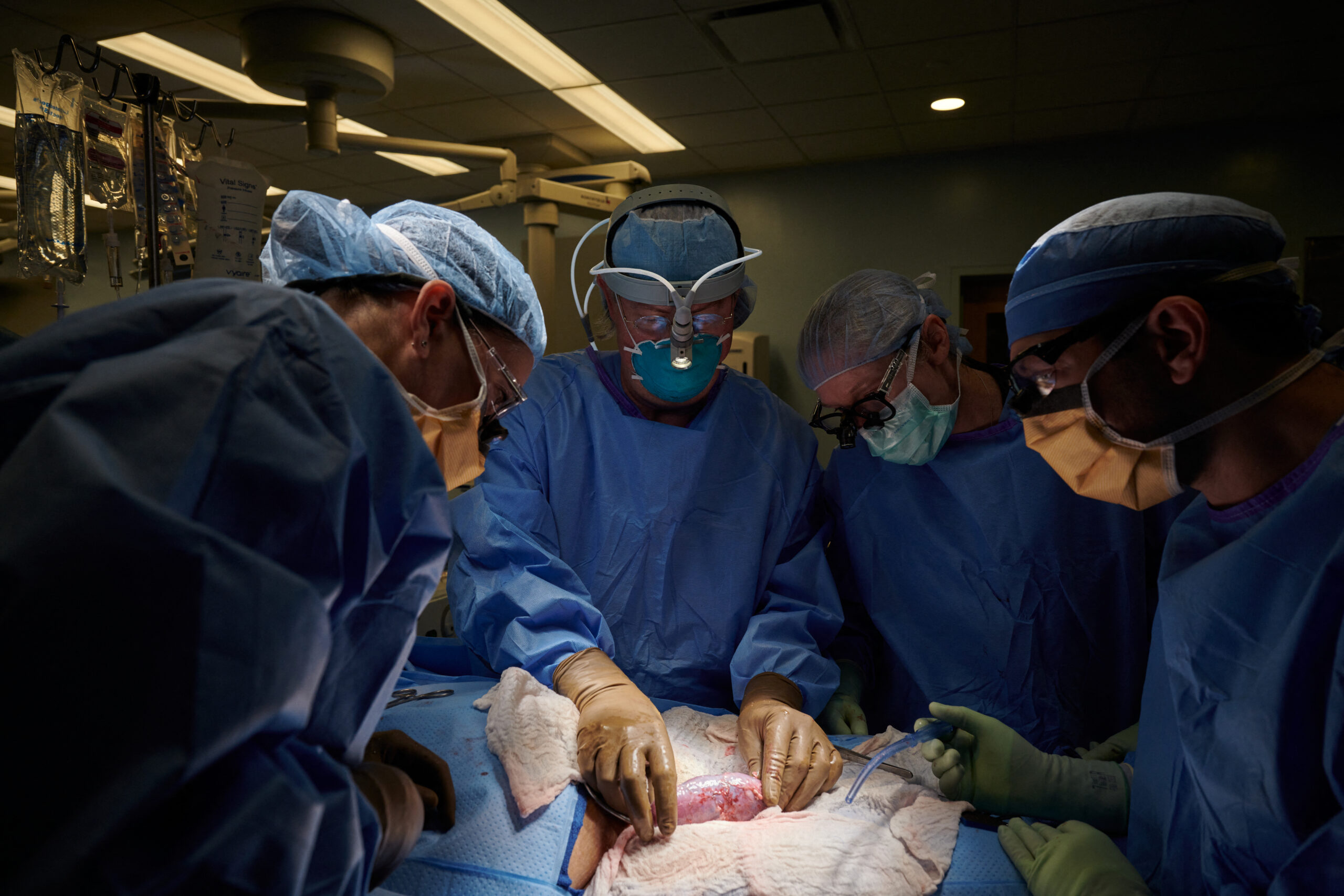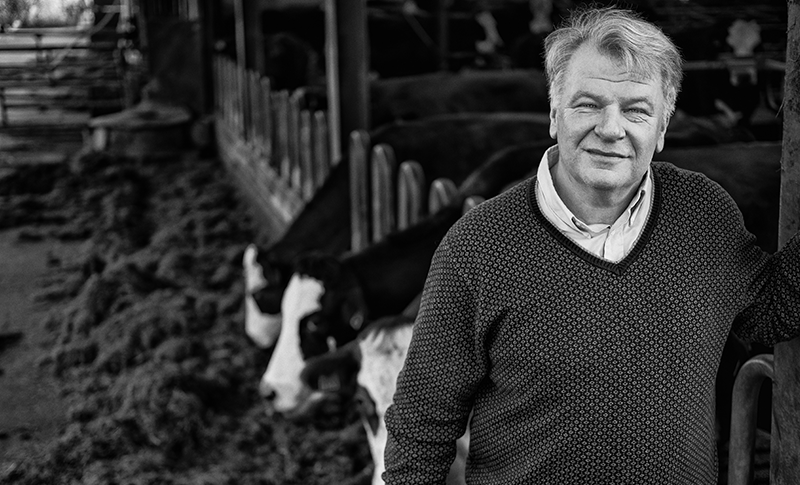For the first time, surgeons have succeeded in transplanting a pig’s kidney into a human. Could this be a future solution to the shortage of donor organs? Is this a medical breakthrough or does the genetic manipulation of animal organs cross a line? Resource asks animal ethics expert Bernice Bovenkerk.
What is your opinion?
‘The debate on xeno-transplantation, the transplanting of animal organs into humans, has been going on since the nineties. Back then, it focused on safety and risks. These aspects moved to the background because people felt that technology would make artificial organs a serious option in the future. However, CRISPR-Cas changed this, making the discussion relevant again.’
‘The ethical discussion is not so much focused on animal welfare as on the question of whether humans want an animal’s organ inside their bodies. Something animal ethics experts are less concerned about because we do not distinguish between animals and humans. As an animal ethics expert, my main concern lies with the instrumentalisation of animals. You reduce them to a thing that has been created to serve our purposes. The pig is purely a source of donor organs or spare parts. This disregards the fact that an animal is living, feeling creature, with its own specific purpose in life.’
But we also eat pigs. How is this different?
‘I understand the argument, especially since donor organs can save lives. This would make keeping pigs for the purpose of organ donation more justifiable than keeping them for meat consumption. Moreover, in livestock farming, we also use technology to modify the animal to suit our needs. This does overlap, but this is taking it one step further as we genetically modify the animal specifically to serve as a donor.’
In ethics, the underlying purpose is leading
‘This goes even further towards turning the animal into an artefact. In medical terms, it may be a minute adjustment, but, in ethics, the underlying purpose is leading. Moreover, these pigs must live a completely sterile life to prevent exposure to pathogens. That begs the question of whether the animals are still able to express natural behaviour and how this affects their well-being. That is an issue that is more relevant in the livestock sector.’
Don’t the interests of humans supersede those of pigs?
‘I understand that many people feel that humans have a higher moral status than other animals. Arguments include the fact that humans are intelligent, communicate through languages and use logic. However, these characteristics are also found in other animals. This means there are no qualitative differences between us and other animal species. Humans observe the world from an anthropocentric perspective, in which we set the standard based on our values. That is an arbitrary standard. If we were to measure moral status in terms of swimming speed, for example, things would be very different. It is actually a form of discrimination of species.’
‘In animal ethics, the basic premise is that the characteristics of species cannot determine moral status. Humans are, after all, not all equally intelligent. Nonetheless, in this day and age, we do not feel that smart people can do as they please with those that are less smart. Neither do we experiment on babies, simply because they do not use language to communicate.’
From a neutral perspective, it is impossible to say that human life holds more value than that of a pig
‘We are held captive by our opinions of what we value in our lives, and thus we attribute more value to human life. Unjustified. A pig, too, has a life, social relationships, wishes and needs. It can experience pain, pleasure and frustration. From a neutral perspective, it is impossible to say that human life holds more value than that of a pig. There is a paradox in that the very fact that pigs and humans are so alike makes them suitable as donors.’
And what about people that are waiting for a donor organ and die before a suitable donor is found?
‘Having to tell people in need of an organ and their families that we will not do this is crude and does not feel right. Say, for example, my child were to need a donor organ and no alternative treatment is available, I, too, would say “yes”. The issue is in the system, and I believe we should search for alternative solutions. If it transpires that we wish to use animal organs, we must have a discussion on the ethics.’
The shortage of donors is the result of our technological progress
‘We must also bear in mind that the shortage of donors is the result of our technological progress. In days gone by, organ transplantation was not an option, and people would simply die. Moreover, we have made driving safer, leading to fewer organ donors. The question is whether animals must be the ones to pay. It is our problem. We have this idea that we must do whatever it takes to prolong our lives, while death is part of life. Maybe we should accept it as such. In any case, I hope the animal is included in the ethical discussion. But I fear that ethics will be overtaken by technology, as is often the case.’

 A surgical team examines the genetically engineered pig kidney. Photo ANP/ Joe Carrotta
A surgical team examines the genetically engineered pig kidney. Photo ANP/ Joe Carrotta 

